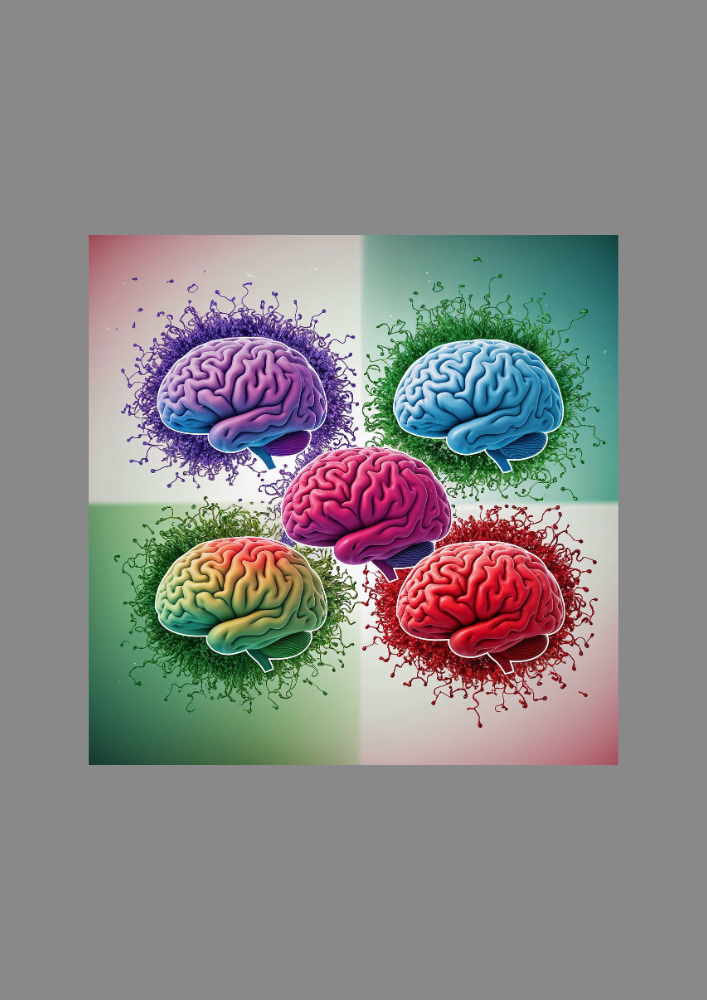Inflammation’s Role in Neurodegenerative Disorders

Introduction
Chronic inflammation is emerging as a major factor in neurodegenerative disorders, including Parkinson’s disease (PD), Alzheimer’s disease (AD), and other related conditions. This blog post explores how inflammation impacts these disorders, highlighting key findings, research gaps, and potential therapeutic avenues. Understanding inflammation’s role is essential for improving outcomes in these debilitating diseases.
The Link Between Inflammation and Neurodegeneration
What is Chronic Inflammation?
Chronic inflammation is a slow, prolonged immune response that lasts for months or years. Unlike acute inflammation, which resolves quickly after a harmful stimulus is eliminated, chronic inflammation persists and can lead to tissue damage, including in the brain.
Parkinson’s Disease and Inflammation
- Microglial Activation
In PD, chronic activation of microglial cells (immune cells in the brain) releases inflammatory cytokines like IL-1β, TNF-α, and IL-6. These substances damage dopaminergic neurons, critical for motor control. - Gut-Brain Axis
Research suggests inflammation in the gut may trigger alpha-synuclein protein misfolding. This misfolded protein travels to the brain, exacerbating PD symptoms. This highlights the role of systemic inflammation in PD. - Blood-Brain Barrier Dysfunction
Chronic inflammation disrupts the blood-brain barrier (BBB), allowing harmful molecules to infiltrate the CNS, further damaging neurons. - Genetic Factors
Genes like LRRK2 and PARK7 are associated with inflammatory responses, increasing susceptibility to PD.
Alzheimer’s Disease and Inflammation
- Amyloid-Beta and Tau Proteins
In AD, amyloid plaques and tau tangles trigger inflammation. This inflammation accelerates neuronal damage and contributes to cognitive decline. - Peripheral Inflammation’s Role
Systemic inflammation, indicated by elevated CRP and IL-6 levels, is linked to an increased risk of AD. - Genetic and Lifestyle Interactions
APOE4, a gene associated with AD, amplifies inflammatory responses. Lifestyle factors like poor diet and obesity further contribute to this risk.
Other Neurodegenerative Disorders
- Huntington’s Disease (HD)
Chronic inflammation exacerbates mitochondrial dysfunction and neuronal death in HD. - Multiple Sclerosis (MS)
MS is driven by immune cells attacking the CNS, leading to inflammation and demyelination. - Amyotrophic Lateral Sclerosis (ALS)
Activated microglia and astrocytes release toxic substances, accelerating motor neuron loss in ALS.
Shared Mechanisms in Neurodegeneration
- Oxidative Stress
Chronic inflammation generates reactive oxygen species (ROS), which damage neurons. - Mitochondrial Dysfunction
Inflammatory cytokines impair mitochondrial function, reducing energy production and increasing cell death. - Synaptic Dysfunction
Pro-inflammatory molecules interfere with synaptic plasticity, leading to cognitive and motor deficits.
Therapeutic Strategies
- Anti-Inflammatory Medications
- NSAIDs: Reduce inflammation by inhibiting cyclooxygenase enzymes.
- Corticosteroids: Suppress multiple inflammatory pathways.
- GLP-1 Receptor Agonists: Drugs like exenatide show promise in reducing neuroinflammation.
- Lifestyle Modifications
- Anti-Inflammatory Diet: Foods rich in omega-3 fatty acids, polyphenols, and antioxidants can reduce systemic inflammation.
- Exercise: Lowers inflammatory markers and supports neurogenesis.
- Gut Microbiome Modulation: Probiotics and fiber promote gut health and reduce inflammation.
- Emerging Therapies
- Targeting specific cytokines like IL-1β could help slow neurodegeneration.
- Combining anti-inflammatory drugs with neuroprotective strategies, like deep brain stimulation (DBS), offers potential synergistic benefits.
Research Gaps and Future Directions
- Age-Dependent Responses
Most studies don’t account for how inflammation impacts the brain differently across various life stages. - Sex Differences
Hormonal influences on inflammation remain underexplored, particularly in postmenopausal women and aging men. - Longitudinal Studies
More long-term research is needed to understand causality between chronic inflammation and neurodegeneration. - Comorbidities
How chronic conditions like diabetes and cardiovascular disease amplify inflammation and neurodegeneration is poorly understood.
Conclusion
Chronic inflammation is a pivotal factor in Parkinson’s disease, Alzheimer’s disease, and other neurodegenerative disorders. While research has made significant strides, addressing the gaps in age-dependent responses, sex-based differences, and comorbidities is critical for developing targeted therapies. Lifestyle interventions, anti-inflammatory medications, and emerging therapies hold promise for mitigating inflammation’s harmful effects on the brain.
DALL-E Prompt
“A vibrant watercolor illustration of a human brain surrounded by swirling cytokines, symbolizing inflammation. The image transitions through three age stages—youth, middle age, and elderly—blending into a serene background of green (health) and red (inflammation). The visual emphasizes the role of inflammation in neurodegenerative diseases like Parkinson’s and Alzheimer’s.”
SEO Keywords
neurodegeneration, chronic inflammation, Parkinson’s disease, Alzheimer’s disease, neuroinflammation
Disclaimer
AI-generated medical content is not a substitute for professional medical advice or diagnosis; I hope you found this blog post informative and interesting. www.parkiesunite.com by Parkie.
The DALL-E image has been created based on the provided prompt. Below is the text of the prompt:
Prompt: “A vibrant watercolor illustration of a human brain surrounded by swirling cytokines, symbolizing inflammation. The image transitions through three age stages—youth, middle age, and elderly—blending into a serene background of green (health) and red (inflammation). The visual emphasizes the role of inflammation in neurodegenerative diseases like Parkinson’s and Alzheimer’s.”
Let me know if you need any modifications or additional insights!